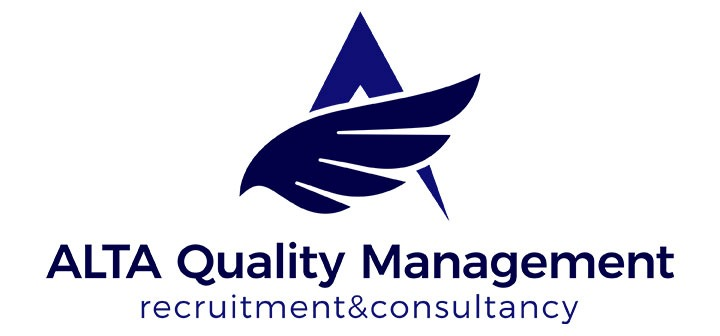
IELTS Certificate
Add a review FollowOverview
-
Founded Date 17 augustus 1990
-
Posted Jobs 0
-
Viewed 9
Company Description
14 Misconceptions Commonly Held About Buy Registered IELTS Certificate

The Risks and Realities of Buying a Registered IELTS Certificate
The International English Language Testing System, commonly understood as IELTS, is a globally acknowledged standardized test designed to examine the language efficiency of non-native English speakers. It is extensively accepted for numerous functions, including migration, study, and professional accreditation in English-speaking nations. As the demand for IELTS certification continues to grow, so does the temptation for some individuals to take faster ways. One such faster way is buying a registered IELTS certificate, a progressively common practice that poses considerable dangers and ethical issues. This post looks into the truths of purchasing an IELTS certificate, the repercussions, and the importance of genuine language efficiency.

Understanding the IELTS Examination
Before diving into the ramifications of buying a registered IELTS certificate, it is vital to comprehend the IELTS examination itself. IELTS is jointly managed by the British Council, IDP: IELTS Australia, and Cambridge Assessment English. The test is readily available in 2 formats: Academic and General Training. The Academic module appropriates for individuals who wish to pursue higher education or professional registration, while the General Training module is aimed at those who are migrating to an English-speaking country or seeking work experience.
Elements of the IELTS Test
The IELTS test includes four parts:
- Listening: Candidates listen to 4 tape-recorded texts and respond to concerns.
- Checking out: This area includes 3 long passages with tasks, ranging from detailed to discursive and analytical.
- Composing: Candidates write two tasks, a summary or report of a minimum of 150 words and an essay of at least 250 words.
- Speaking: This is an in person interview with an examiner, covering numerous subjects through a series of concerns.
The Temptation to Buy a Registered IELTS Certificate
For lots of, the IELTS test is a substantial turning point. It needs extensive preparation, monetary investment, and a substantial time commitment. The pressure to be successful can be overwhelming, specifically for those who face several re-takes or have actually limited opportunities to enhance their English skills. This pressure often leads some individuals to consider unethical approaches, such as purchasing a registered IELTS certificate.
Motivations Behind the Decision
- Time Constraints: Some candidates might feel that they do not have sufficient time to prepare properly for the test.
- Financial Burden: Repeated efforts can be pricey, and the monetary strain may press people to seek fast options.
- Worry of Failure: The fear of not meeting the needed score can result in desperation.
- Absence of Language Skills: Some prospects might not have the essential language efficiency to pass the test on their own.
The Dangers of Buying a Registered IELTS Certificate
While the temptation to buy a registered IELTS certificate might seem like a fast repair, it is fraught with risks and can have significant effects.
Legal and Ethical Implications
- Fraud: Purchasing a fake certificate is a form of fraud and is prohibited. It can cause serious legal consequences, including fines and jail time.
- Ethical Concerns: Dishonesty undermines the integrity of the IELTS system and can have an unfavorable effect on the person’s personal and professional reputation.
- Misrepresentation: Submitting a fake certificate can lead to being declined from institutions or employers and can result in an irreversible blacklisting.
Practical Consequences
- Institutional Rejection: Universities and academic organizations can confirm IELTS scores through authorities channels. Sending a fake certificate can result in instant rejection and may even result in the cancellation of any deals currently extended.
- Expert Disqualification: Employers might require candidates to provide their official IELTS ratings. If a fake certificate is identified, it can lead to disqualification from the job application procedure.
- Immigration Issues: Immigration authorities in English-speaking countries can likewise confirm IELTS scores. Submitting a fake certificate can lead to the rejection of visa applications and might even lead to a ban on future applications.
The Importance of Genuine Language Proficiency
Beyond the legal and ethical implications, there are useful reasons genuine language efficiency is important.
Academic and Professional Success
- Academic Performance: Universities and educational organizations need a particular level of English efficiency to guarantee that students can deal with the academic workload. A genuine IELTS score shows the candidate’s ability to understand and interact efficiently in an academic setting.
- Expert Competence: Employers in English-speaking countries require workers who can interact efficiently in English. A fake IELTS certificate might get a candidate through the door, but it will not assist them perform well in their task, resulting in prospective underperformance and job loss.
- Cultural Integration: For those migrating to English-speaking countries, genuine language proficiency is important for cultural integration and social interaction. A fake certificate does not prepare people for the difficulties of living in a new environment.
Long-Term Benefits
- Personal Development: Improving language abilities through genuine preparation can boost self-confidence and open up a world of chances.
- Expert Growth: Employers worth prospects who have actually demonstrated a genuine commitment to enhancing their language abilities.
- Academic Opportunities: Universities typically offer additional assistance and resources to trainees who require to enhance their English, however this support is only available to those who have a genuine need and a desire to find out.
How to Prepare for the IELTS Test Ethically
Getting ready for the IELTS test morally is the best way to guarantee success and prevent the pitfalls of buying a fake certificate.
Actions to Prepare for IELTS
- Understand the Test Format: Familiarize yourself with the structure and content of the IELTS test.
- Practice Regularly: Use official IELTS practice materials and take mock tests to improve your skills.
- Seek Assistance: Consider registering in a preparation course or working with a tutor to identify and address your weaknesses.
- Immerse Yourself in English: Watch English motion pictures, read English books, and engage in conversations with native speakers to improve your language skills.
- Stay Motivated: Set realistic goals and preserve a favorable mindset throughout your preparation.
Resources for IELTS Preparation
- Authorities Practice Materials: The British Council, IDP, and Cambridge Assessment English offer official practice tests and study products.
- Online Courses: Websites like Coursera and Udemy use IELTS preparation courses.
- Books and Guides: There are many books and guides readily available that can assist you prepare for the test.
- Language Exchange Programs: Join language exchange programs to practice speaking and listening abilities with native speakers.
Regularly Asked Questions (FAQs)
Q1: Is buying a registered IELTS certificate illegal?
A1: Yes, purchasing a registered IELTS certificate is illegal and constitutes scams. It can result in legal consequences, including fines and imprisonment.
Q2: Can organizations validate IELTS scores?
A2: Absolutely. Universities, companies, and immigration authorities can confirm IELTS scores through authorities channels. Submission of a fake certificate can cause instant rejection and long-term effects.
Q3: What are the risks of purchasing a fake IELTS certificate?
A3: The risks include legal action, ethical implications, and practical consequences such as rejection from organizations, disqualification from task applications, and migration issues.
Q4: How can I improve my IELTS score fairly?
A4: You can improve your IELTS score by comprehending the test format, practicing frequently, looking for support from tutors or courses, immersing yourself in the English language, and remaining inspired.
Q5: Are there any repercussions for utilizing a fake IELTS certificate after being accepted into a program or task?
A5: Yes, if a fake IELTS certificate is found after acceptance, it can result in immediate expulsion from the program or termination from the task, together with potential legal effects.
The IELTS test is an extensive and reasonable assessment of English language efficiency. While the pressure to be successful can be extreme, the dangers and consequences of purchasing a registered IELTS certificate far exceed any perceived benefits. Ethical preparation and genuine language improvement are the only courses to true success. By investing time and effort into getting ready for the test, individuals can not only accomplish their desired ratings but likewise acquire the abilities essential to be successful in their chosen academic or professional courses. The integrity of the IELTS system is essential, and keeping it benefits everybody involved.

